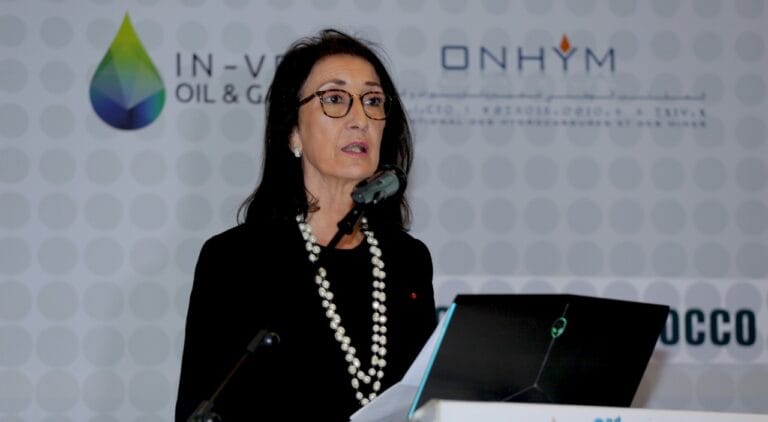The Director General of the National Office of Hydrocarbons and Mines (ONHYM), Amina Benkhadra, presented in Washington the major advancements of the Africa-Atlantic Pipeline (GAA) during an event organized on Wednesday by the American think tank Atlantic Council.
This large-scale project, stemming from the vision of His Majesty King Mohammed VI and the President of Nigeria, is entering a decisive investment phase, Ms. Benkhadra stated during this strategic briefing, held alongside her participation in the “Powering Africa Summit,” a major event on energy partnership between the United States and Africa taking place on March 6 and 7 in the American federal capital.
In front of an audience of diplomats, energy experts, private sector representatives, and donors, the DG of ONHYM emphasized the fundamental importance of this infrastructure for the energy security of West Africa, Europe, and, more broadly, the Atlantic space.
Embedded in a dynamic of regional cooperation and sustainable development, this initiative aims to address the continent’s energy challenges while strengthening economic ties between the countries involved, she indicated.
Recalling that the project has passed important milestones, Ms. Benkhadra specified that the final investment decision is progressing with a gradual commissioning planned for the first sections as early as 2029.
In this perspective, she stressed the importance of strategic partnerships, mentioning advanced discussions underway with major international operators, including American ones, and financial institutions to ensure the economic and technical viability of the project.
Beyond its energy stakes, the GAA stands out, according to the DG of ONHYM, for its scale and major socio-economic impact. With a length of over 6,000 kilometers, the future pipeline aims to serve nearly 400 million people, thus contributing to the electrification of the continent in a context where energy access remains limited to 40% for some countries.
Beyond energy supply, this infrastructure represents a lever for industrial development, facilitating the emergence of new production hubs and stimulating local economies.
Ms. Benkhadra particularly highlighted the synergies between the GAA and the critical minerals sector, a key area that will directly benefit from better access to energy, thus promoting the exploitation and transformation of natural resources.
The Moroccan ambassador to Washington, Youssef Amrani, opened the discussion by placing the pipeline in its broader geopolitical context, at a time when, he noted, energy issues occupy a central place in the American agenda.
He emphasized that this megaproject is fully aligned with the strategic vision carried by His Majesty King Mohammed VI and represents a fundamental pillar of the Royal Atlantic Initiative. This visionary approach aims, he said, to strengthen the economic integration of the African continent and improve its energy connectivity with the rest of the world, thereby creating corridors for inclusive growth and sustainable development.
Highlighting the imperative to accelerate international collaborations, the ambassador stressed the need to mobilize funding and support the next steps of the project, capitalizing on the growing interest shown by international partners.
This strategic briefing initiated by the prestigious American research center generated strong enthusiasm among participants, illustrating the central role of the Africa-Atlantic Pipeline in the continent’s energy future and its structuring role in global energy cooperation.
Through this project, Morocco reaffirms its commitment to a more connected, more integrated, and more sovereign Africa in terms of energy, Mr. Amrani noted.


